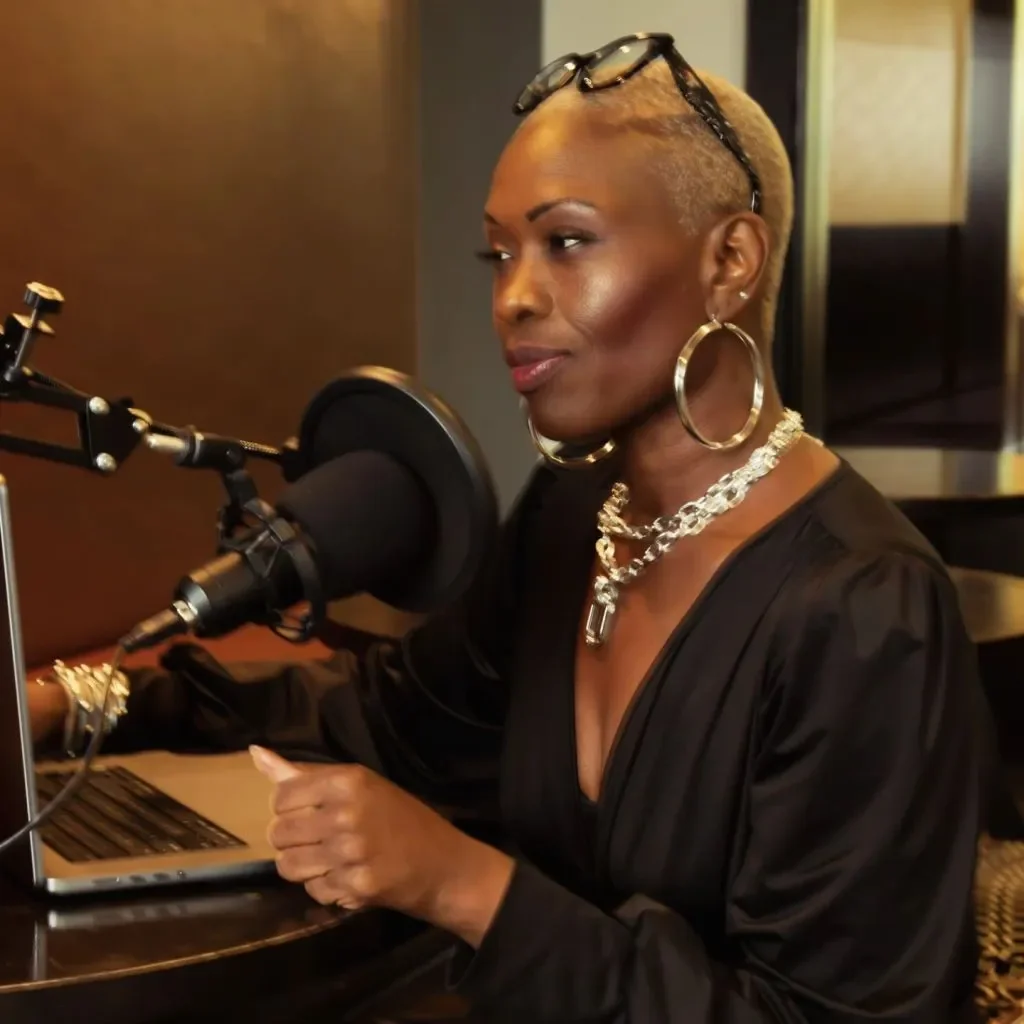The Gift of an Imperfect Voice
I’ve used my voice as an offering, a gift, to people throughout my life. And if I’m being completely honest? No, it hasn’t always sounded nice. Sometimes it’s been raw, difficult, even uncomfortable to hear. But here’s what I want you to know: my intent has always been to build up, restore, and heal.
A few years ago, someone said something to me that changed everything. They told me I had a voice that heals. Before I could feel too good about myself, they added the other part: that same voice can cut open wounds with people who are unhealed and insecure.
Well, damn.
Talk about a mirror being held up to your face. But here’s the thing — they were absolutely right. And that moment of honest feedback became one of the greatest gifts I’ve ever received.
When the Healer Needs Healing
Let me take you back a bit. My voice didn’t start out as a healing tool. It started as a survival mechanism, forged in the fires of childhood trauma. When you grow up feeling unworthy, neglected, or betrayed by the very adults who were supposed to protect you, you learn to use your voice in whatever way keeps you safe. Sometimes that meant being loud. Sometimes it meant being silent. And sometimes, it meant being brutally, painfully direct.
I had to heal myself first before I could help anyone else. And that journey taught me something crucial: there’s a massive difference between speaking truth and wielding it like a weapon.
The old me? I was direct, sometimes to the point of being judgmental. I thought honesty meant saying exactly what I thought, exactly when I thought it, regardless of how it landed. I confused bluntness with authenticity. And let me tell you, that approach left some casualties in its wake.
The Shift: From Direct to Deliberate
The transformation came when I discovered the power of empathy and a trauma-informed approach. I learned that most people aren’t refusing to see the truth — they’re just not ready to look at it yet. Their wounds are still too fresh, their defenses still too necessary for survival.
I began to understand that my ability to become a reflection of others — to mirror back what they couldn’t see in themselves — was a gift. But like any powerful gift, it could be used to build up or to tear down. The difference wasn’t in the truth itself. It was in the delivery, the timing, and the intention behind it.
Now, when I speak difficult truths, I do it with compassion. I create space for hard conversations instead of bulldozing through them. I ask questions instead of making pronouncements. And most importantly, I’ve learned to check my own ego at the door.
Because here’s the thing: if I’m speaking truth to make myself feel righteous or superior, that’s not healing. That’s just my own unhealed wounds talking.
The Art of Pulling Your Own Coattail
I wish I could tell you I’ve mastered this. I haven’t. Not even close.
I’m still on this road of learning, and honestly? I’ll probably be on it for the rest of my life. There are days when I have to literally pull my own coattail to keep from misspeaking or over-speaking to people. Days when I feel that familiar itch to say the hard thing, and I have to ask myself: “Is this for them, or is this for me?”
Sometimes the answer is uncomfortable.
I’ve also learned — and this one took me a while — that there is profound power in my silence. Sometimes silence has to do the work. Sometimes the most loving thing I can offer someone is my presence without my commentary. Sometimes people don’t need my truth; they need my witness.
Learning when to speak and when to shut up? That’s the real work. (And let’s be honest, some of us are better at the speaking part than the shutting up part. Guilty as charged.)
The Mirror Effect
Here’s where it gets interesting. I have this ability to become a reflection of others. I see patterns, blind spots, and truths that people hide even from themselves. And when you have that ability, it comes with a responsibility that I’m still learning to navigate.
Because when you hold up a mirror to someone, you never know what they’re going to see. Some people look in that mirror and feel empowered. They see themselves clearly, maybe for the first time, and it catalyzes their healing. Others look in that mirror and see only their wounds, their shame, their inadequacy. And that reflection can cut deep.
The mirror doesn’t change. But the person looking into it? They’re in different stages of their journey. What heals one person can wound another, not because the truth is different, but because they’re different.
So I’ve had to learn to be more thoughtful about when I hold up that mirror. More patient. More discerning. And yes, sometimes I still get it wrong. Sometimes I speak when I should have stayed silent. Sometimes my timing is off. Sometimes my delivery needs work.
I’m a work in progress, learning to use this gift for good.
Truth, Delivered with Love
There’s something powerful about speaking truth even when your voice shakes. About choosing words that might sting in the moment but serve a deeper purpose. About showing up authentically, even when it would be easier to stay quiet or say what people want to hear.
But I’ve learned that truth without compassion is just cruelty with a permission slip. Real healing happens when we can speak difficult truths wrapped in genuine care. When we can challenge someone while still holding space for their humanity. When we can be direct without being destructive.
My voice — imperfect, evolving, still learning — has been my way of saying: “I see you. I believe in you. And I care enough about who you’re becoming to offer you truth when you need it, and silence when that’s what serves you better.”
The Work Continues
I’m not writing this from a place of having arrived. I’m writing this from the messy middle of the journey. From a place where I’m constantly checking myself, adjusting my approach, and trying to honor both my gift and the responsibility that comes with it.
Some days I nail it. Some days I don’t. Some days I use my voice as a healing instrument. Other days I have to apologize for playing the wrong notes. And that’s okay. That’s the work.
Because the alternative — silencing myself out of fear of getting it wrong — would be a different kind of wound. Not just for others, but for me too.
Your Voice Matters Too
So here’s what I want you to know: your voice matters. Not your perfect voice. Not your polished, filtered, socially-acceptable voice. Your real voice. The one that’s been shaped by your experiences, your wounds, your healing, and your growth.
Maybe you’ve been told you’re too much. Too loud. Too honest. Too direct. Or maybe you’ve been told you’re too quiet. Too passive. Too afraid to speak up.
Either way, you have a gift to offer the world. And yes, it’s going to be imperfect. Yes, you’re going to get it wrong sometimes. Yes, you’re going to have to learn when to speak and when to stay silent.
But the world needs your voice. Not despite its imperfections, but because of them. Because your imperfect voice carries your unique truth, your hard-won wisdom, and your capacity to heal — both yourself and others.
Just remember to pull your own coattail when you need to. Trust the power of your silence as much as your words. And keep learning. Keep growing. Keep using your gift for good.
The journey doesn’t end. But that’s actually the best part.
What about you? How are you learning to use your voice? What’s the hardest lesson you’ve learned about when to speak and when to stay silent? I’m still figuring this out, so I’d genuinely love to hear your experience.

